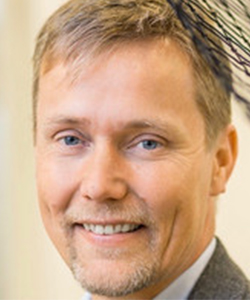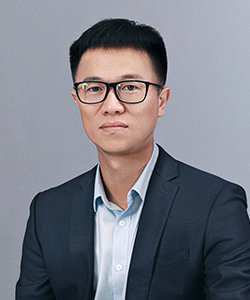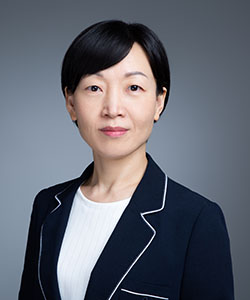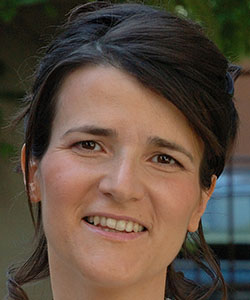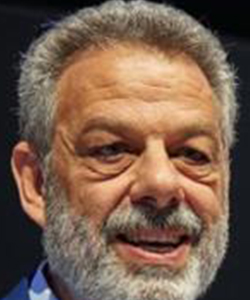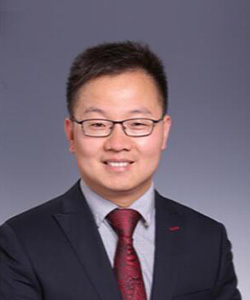LATEST NEWS
Program schedule is now available (click here)!
Registration is now open!
NecSys 2025 will take place at Clearwater Bay Campus, HKUST, Hong Kong!
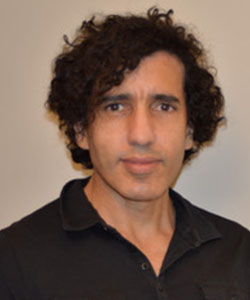
Mohamed-Ali Belabbas
University of Illinois Urbana-Champaign, USA
Title of Speech: A geometric control approach to distributed learning and fine tuning
Abstract: In the large number of layers limit, deep learning architectures like residual networks and transformers naturally converge to controlled ordinary differential equations. Embracing this perspective, the talk takes a geometric control approach to learning and model tuning. Building on new results about the geometry of the space of model parameters that memorize a dataset, we propose new algorithms for these tasks and illustrate their performance. We conclude with open questions bridging geometric control theory, optimization landscapes, and the implicit biases of gradient-based learning.
Bio: Mohamed-Ali Belabbas obtained his MS and PhD degrees in applied mathematics from Harvard University, working with Prof. Roger Brockett, and undergraduate degrees from Ecole Centrale Paris, France, and Universite Catholique de Louvain, Belgium. He is currently an associate professor in the Electrical and Computer Engineering department in the Grainger College of Engineering at the University of Illinois, Urbana-Champaign and in the Coordinated Science Laboratory. His research interests are in Networked Control System, Geometric Control, Stochastic Control and their applications. He is a recipient of the 2024 Bessel Research Award from the Humboldt Foundation.
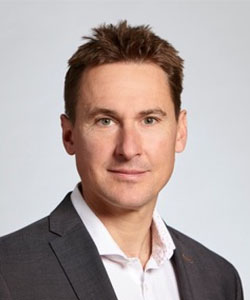
Florian Dörfler
ETH Zurich, Switzerland
Title of Speech: Population Dynamics Meet Network Optimization: A Decision-Dependent Stochastic Formulation
Abstract: As networked systems grow in scale, an emerging perspective is to describe the collective states or intrinsic uncertainty of a network with a continuum of agents via a probability measure. This view is relevant in many contexts of decision-making; for instance, a political party seeks to maximize the overall affinity across a population. In general, decision-makers select inputs to drive network-wide states through system dynamics, causing non-stationary population distributions in network optimization problems. We formulate this dynamic setting as stochastic optimization with decision dependence, featuring nonlinear population dynamics that couple the evolving distribution with the decision. This formulation provides a fertile ground to examine the various roles played by dynamics in the composite problem structure. To this end, we develop an online algorithm that achieves optimal decision-making by both adapting to and shaping the population distribution. We adopt a distributional view and demonstrate how this vantage point facilitates characterizations of population dynamics and the optimality of the proposed algorithm. We showcase the theoretical results in a recommender system example of affinity maximization with polarized population dynamics. This is joint work with Zhiyu He, Saverio Bolognani, and Michael Muehlebach.
Bio: Florian Dörfler is a Professor at the Automatic Control Laboratory at ETH Zürich. He received his Ph.D. degree in Mechanical Engineering from the University of California at Santa Barbara in 2013, and a Diplom degree in Engineering Cybernetics from the University of Stuttgart in 2008. From 2013 to 2014 he was an Assistant Professor at the University of California Los Angeles. He has been serving as the Associate Head of the ETH Zürich Department of Information Technology and Electrical Engineering from 2021 until 2022. His research interests are centered around automatic control, system theory, optimization, and learning. His particular foci are on network systems, data-driven settings, and applications to power systems. He is a recipient of the distinguished young research awards by IFAC (Manfred Thoma Medal 2020) and EUCA (European Control Award 2020). He and his team received best paper distinctions in the top venues of control, machine learning, power systems, power electronics, circuits and systems. They were recipient of the 2011 O. Hugo Schuck Best Paper Award, the 2012-2014 Automatica Best Paper Award, the 2016 IEEE Circuits and Systems Guillemin-Cauer Best Paper Award, the 2022 IEEE Transactions on Power Electronics Prize Paper Award, the 2024 Control Systems Magazine Outstanding Paper Award, and multiple Best PhD thesis awards at UC Santa Barbara and ETH Zürich. They were further winners or finalists for Best Student Paper awards at the European Control Conference (2013, 2019), the American Control Conference (2010,2016,2024), the Conference on Decision and Control (2020), the PES General Meeting (2020), the PES PowerTech Conference (2017), the International Conference on Intelligent Transportation Systems (2021), the IEEE CSS Swiss Chapter Young Author Best Journal Paper Award (2022,2024), the IFAC Conference on Nonlinear Model Predictive Control (2024), and NeurIPS (2024). He is currently serving on the council of the European Control Association and as a senior editor of Automatica.

Hideaki Ishii
The University of Tokyo, Japan
Title of Speech: Resiliency in Multi-Agent Consensus under Adversarial Attacks
Abstract: In this talk, we provide an overview on the recent advances in the research of multi-agent systems operating in hostile environments. We will will focus on the influence of misbehaving agents in a network capable to inject false data in their transmissions and how to mitigate such attacks by the approach based on the socalled mean subsequence reduced algorithms and their variants. Agents equipped with such algorithms will ignore their neighbors taking extreme state values. We will see that characterizations on the properties necessary for network topologies have been established, and moreover that network resiliency can be enhanced when more communication and computational resources are available. We will further discuss extensions of such algorithms to problems of averaging, leader-follower consensus, parameter estimation, and clock synchronization in wireless sensor networks.
Bio: Hideaki Ishii received the M.Eng. degree from Kyoto University in 1998, and the Ph.D. degree from the University of Toronto in 2002. He was a Postdoctoral Research Associate at the University of Illinois at Urbana-Champaign in 2001--2004, and a Research Associate at The University of Tokyo in 2004--2007. He was an Associate Professor and then a Professor at the Tokyo Institute of Technology in 2007--2024. Currently, he is a Professor at the Department of Information Physics and Computing, The University of Tokyo. He was a Humboldt Research Fellow at the University of Stuttgart in 2014--2015. He has also held visiting positions at CNR-IEIIT at the Politecnico di Torino, the Technical University of Berlin, and the City University of Hong Kong. His research interests include networked control systems, multiagent systems, distributed algorithms, and cyber-security of control systems.
Dr. Ishii has served as an Associate Editor for Automatica, the IEEE Control Systems Letters, the IEEE Transactions on Automatic Control, the IEEE Transactions on Control of Network Systems, and the Mathematics of Control, Signals, and Systems. He was a Vice President for the IEEE Control Systems Society (CSS) in 2022-2023, the Chair of the IFAC Coordinating Committee on Systems and Signals in 2017-2023, and the Chair of the IFAC Technical Committee on Networked Systems for 2011-2017. He served as the IPC Chair for the IFAC World Congress 2023 held in Yokohama, Japan. He received the IEEE Control Systems Magazine Outstanding Paper Award in 2015. Dr. Ishii is an IEEE Fellow.
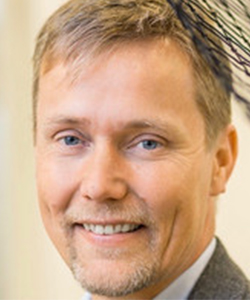
Karl Henrik Johansson
KTH Royal Institute of Technology, Sweden
Title of Speech: Observer Synthesis for Nonlinear Systems via Physics-Informed Learning
Abstract: A novel learning approach for designing Kazantzis-Kravaris-Luenberger (KKL) observers for autonomous nonlinear systems will be presented. The design of a KKL observer involves finding an injective map that transforms the system state into a higher-dimensional observer state with linear dynamics. The observer's state is then mapped back to the original system coordinates via the inverse map to obtain the state estimate. However, finding such a transformation and its inverse is challenging. We propose to sequentially approximate the maps by neural networks that are trained using physics-informed learning. We generate synthetic data for training by numerically solving the system and observer dynamics. Theoretical guarantees for the robustness of state estimation against approximation error and system uncertainties are provided. Additionally, a systematic method for optimizing observer performance through parameter selection is presented. The effectiveness of the proposed approach is demonstrated through numerical simulations on benchmark examples and its application to sensor fault detection and isolation in a network of Kuramoto oscillators using learned KKL observers. The presentation is joint work with Umar Niazi, John Cao, Matthieu Barreau, and Amritam Das.
Bio: Karl H. Johansson is Swedish Research Council Distinguished Professor in Electrical Engineering and Computer Science at KTH Royal Institute of Technology in Sweden and Founding Director of Digital Futures. He earned his MSc degree in Electrical Engineering and PhD in Automatic Control from Lund University. He has held visiting positions at UC Berkeley, Caltech, NTU and other prestigious institutions. His research interests focus on networked control systems and cyber-physical systems with applications in transportation, energy, and automation networks. For his scientific contributions, he has received numerous best paper awards and various other distinctions from IEEE, IFAC, and other organizations. He has been awarded Distinguished Professor by the Swedish Research Council, Wallenberg Scholar by the Knut and Alice Wallenberg Foundation, Future Research Leader by the Swedish Foundation for Strategic Research. He has also received the triennial IFAC Young Author Prize, IEEE CSS Distinguished Lecturer, IFAC Outstanding Service Award, and IEEE CSS Hendrik W. Bode Lecture Prize. His extensive service to the academic community includes being President of the European Control Association, IEEE CSS Vice President Diversity, Outreach & Development, and Member of IEEE CSS Board of Governors and IFAC Council. He has served on the editorial boards of Automatica, IEEE TAC, IEEE TCNS and many other journals. He has also been a member of the Swedish Scientific Council for Natural Sciences and Engineering Sciences. He is Fellow of both the IEEE and the Royal Swedish Academy of Engineering Sciences.
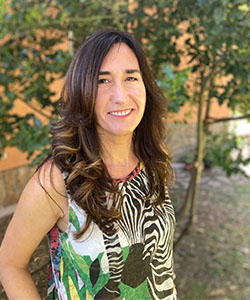
Sonia Martinez
University of California, San Diego, USA
Title of Speech: Measuring and enhancing network resilience: metrics, learning, and defense strategies
Abstract: Resilience, understood as the ability of a network to carry out its goals under adversarial attacks and unexpected failures, is critical for autonomy. Despite important advances in the design of distributed coordination and decision-making algorithms, multi-agent networks have proven fragile to targeted attacks. Novel theories and tools are therefore needed to guarantee resiliency of these systems, being the development of notions and techniques that characterize network resilience critical. However, obtaining such characterizations is difficult as resilience and performance are a complex function of the network’s and adversary’s capabilities, knowledge, resources, and the network interconnection structure. At the same time, we also need novel design methodologies that can protect multi-agent networks and adaptively manage their interconnection over time to achieve performance guarantees. In this talk, we present our recent progress in these directions including algorithmic methods for metric computation, data-driven algorithms for multi-agent learning, and defense strategies.
Bio: She received her PhD degree in Engineering Mathematics from the University Carlos III of Madrid, Spain, in May 2002. After this, she spent two years as a Fulbright Postdoctoral Scholar at the University of Illinois at Urbana-Champaign and the University of California, Santa Barbara. She started as an Assistant Professor at the University of California, San Diego in 2006; and became a Full Professor in Mechanical and Aerospace Engineering in 2014, being affiliated there ever since. She was honored to become a Jacobs Faculty Scholar in 2019. She is a Fellow of the IEEE, class 2018.
Her research interests span all aspects of the control of networked, multi-agent systems, including robotic teams and cyber-physical systems. She have particularly focused on the analysis and design of distributed coordination algorithms for groups of autonomous robots, by leveraging nonlinear control, distributed optimization, and game-theoretic approaches. Current topics of interest include the resilient, safe and robust coordination of mixed multi-agent systems subject to adversarial action.
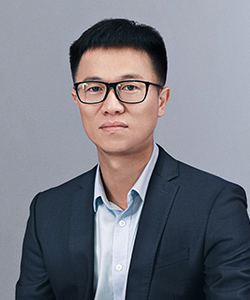
Yinian Mao
Meituan, China
Title of Speech: CNS in urban drone logistics networks: challenges and solutions
Abstract: With the rapid development of urban air mobility, drone logistics networks are emerging as a critical component of smart city infrastructure. However, complex urban environments pose significant challenges to communication, navigation and surveillance (CNS) systems: signal occlusion and interference may cause communication failures, complex building clusters degrade navigation accuracy, and airspace congestion with dynamic obstacles threatens operational safety. This talk introduces innovative solutions utilized in Meituan drone delivery systems for tackling the aforementioned challenges, including cutting-edge technologies such as 4G/5G/WiFi communication redundancy, satellite-vision-inertial multimodal navigation fusion and digital-twin enabled collaborative airspace management.
Bio: Dr. Yinian Mao is head of Meituan’s Drone Delivery Business and Vice President of Meituan. Dr. Mao has more than 20 years of industry experience with Meituan, Qualcomm, and Airlango Technology. He received his Ph.D. degree from University of Maryland, and B.S.E. from Tsinghua University, both in Electrical Engineering.
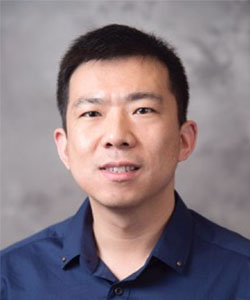
Shaoshuai Mou
Purdue University, USA
Title of Speech: Fundamental Mechanisms to Coordinate Multi-Agent Systems: Consensus and Beyond
Abstract: Multi-agent systems (i.e. a network of interconnected autonomous systems working as a cohesive whole) usually offer better autonomy than individual systems. Consensus, which requires all agents’ states to reach the same value, has served as one fundamental mechanism to coordinate multi-agent systems. There has been a tremendous amount of research devoted to developing consensus-based distributed algorithms for computation, optimization and reinforcement learning. In this talk, we will briefly introduce our recent progress in consensus-based distributed algorithms for solving linear equations and multi-agent optimization. We will also introduce conservation (i.e. the sum of agents’ states subject to a constant), and edge agreement (i.e. each pair of neighboring agents’ states subject to a linear or nonlinear constraint) to serve as fundamental mechanisms in coordination of multi-agent systems when the coordination is more than reaching a global agreement in consensus or even dimensions of agents' states are different. In addition, we will present a distributed algorithms based on a simple combination of conversation and consensus for solving linear equations, which shows better scalability than distributed algorithms based on only consensus.
Bio: Shaoshuai Mou is the Elmer Bruhn associate professor in the School of Aeronautics and Astronautics at Purdue University. He received a Ph.D. in Electrical Engineering at Yale University in 2014, worked as a postdoc researcher at MIT for a year, and then joined Purdue University as a tenure-track assistant professor in Aug. 2015. His research group Autonomous & Intelligent Multi-agent Systems (AIMS) lab has been focusing on advancing control theories with recent progress in optimization, networks and learning to address fundamental challenges in autonomous systems, with particular research interests in multi-agent systems, control of autonomous systems, learning and adaptive systems, human-robot teaming, etc. Dr. Mou co-directs Purdue’s Institute for Control, Optimization and Networks (ICON) launched in 2020 consisting of about 100 faculty from 15 departments across Purdue University, with the aim of enhancing research collaboration and educational coordination in autonomous and robotics systems.

Shusen Meng
China Unicom Global, Hong Kong
Title of Speech: Building a Smarter, Better-Connected World
Abstract: This talk will examine key dimensions in the development of the next-generation internet, with a particular focus on the advancement and integration of artificial intelligence into network infrastructures, the conceptualization and evolution of future communication networks, and the establishment of frameworks for global collaborative innovation. Drawing upon recent initiatives led by China Unicom, the speaker will offer empirical insights and representative case studies that illustrate efforts to re-architect network systems and advance a globally intelligent and interconnected digital ecosystem.
In addition, the talk will assess the transformative implications of the AI era for network architecture—emphasizing emerging demands for ultra-high bandwidth, low latency, and autonomous orchestration. It will further propose forward-looking strategies for industrial transformation and international cooperation, highlighting network operators' critical role and strategic responsibility in building a resilient, intelligent, and high-performance next-generation internet.
Bio: Dr. Shusen Meng was appointed Chairman & CEO of China Unicom Global Limited and Managing Director of China Unicom (Hong Kong) Limited in 2015, was appointed Dean of China Unicom (Hong Kong) Innovation Research Institute Limited in 2024. Dr. Meng oversees the international business operations, strategic cooperation, ecological construction, and corporate governance. With extensive experience in the governance of listed companies, her expertise spans investor relations, financial and tax management, and other key areas. Since 2024, she has spearheaded the Hong Kong Innovation Institute, driving the establishment of an overseas sci-tech innovation system. Dr. Meng has over 26 years of experience across technology research and development, sales and marketing, international operations, and corporate governance in telecommunication industry. She plays an important role in the contribution of China Unicom's overseas business development. At present, China Unicom Global has 41 subsidiaries. With its extensive global network and business resources, China Unicom Global provides global operators and enterprises with integrated cloud-network, green and secure digital information solutions.
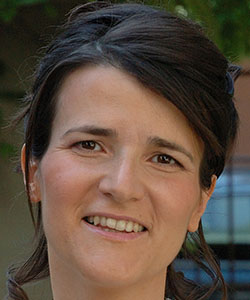
Maria Prandini
Politecnico di Milano, Italy
Title of Speech: Balancing services provision via aggregation of flexible prosumers
Abstract: The increasing integration of renewable energy sources into the electrical grid may lead to imbalances between supply and demand, resulting in frequency fluctuations and potential instability. In this presentation, we will introduce a framework for the optimal management and coordination of a pool of prosumers that provide balancing services to the grid. The proposed solution addresses jointly the two key challenges of evaluating the overall flexibility of the pool and designing a disaggregation policy that maps the power requests by the grid into the contributions of each individual prosumer. Additionally, we will show how practical constraints such as time availability of the resources within the service window or network congestion constraints can be accounted for, and that optimizing the baseline power exchange profiles can enhance the pool's flexibility. This is a joint work with Federico Bianchi, Alessandro Falsone, and Daniel Zamudio.
Bio: Maria Prandini is currently full professor in Automatic Control at Politecnico di Milano, Italy, where she has been Chair of the Automation and Control Engineering Study Program from 2019 to 2024. She was elected Fellow of the IEEE in 2020 and received the IEEE Control Systems Society (CSS) Distinguished Member award in 2018. In 2017, she was August-Wilhelm Scheer Visiting Professor and Honorary fellow of the TUM Institute for Advanced Studied. She is Visiting Professor in Engineering at the University of Oxford since 2022. She has been contributing to the IEEE CSS, the International Federation of Automatic Control (IFAC), and the Association for Computing Machinery (ACM) in different roles. She is currently IFAC President-elect for the triennium 2023-26. Previously, she was Vice-President for conference activities for IFAC (2020-23) and IEEE CSS (2016 and 2017), and a member of SIGBED Board of Directors (2019-21). Her research interests include distributed and data-driven optimization, multi-agent systems, and the application of control theory to transportation and energy systems.
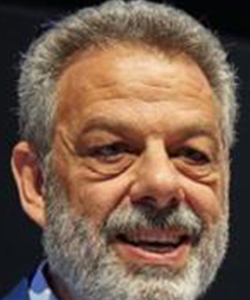
Thomas Parisini
Imperial College London, UK
Title of Speech: Networked Systems Meet Geometric Approaches: Two Use Cases on Privacy Protection and Distributed UIOs
Abstract: We develop a general geometric approach to address two important applications in the context of networked systems: i) output allocation for privacy protection, and ii) design of distributed unknown-input observers. The fil-rouge of the geometric approach stems from its inherent independence from coordinates and from the time-domain that can be continuous- and discrete-time without any methodological difference. For use-case i), we consider the properties of output redundant systems through the lenses of a geometric approach by formulating an output allocation synthesis problem, which involves “concealing” input information from a malicious eavesdropper having access to the system output, while still allowing for a legitimate user to reconstruct it. It is shown that the solvability of this problem requires the availability of a redundant set of outputs. This very problem is instrumental to unveiling the fundamental geometric properties of output-redundant systems, which form the basis for our subsequent constructions and results. As a direct application, we demonstrate how output allocation can be employed to effectively protect the information of input information from certain output eavesdroppers with guaranteed results. For use-case ii), we design distributed state observers exchanging information through a network in dynamic systems for which measurements are distributed across nodes and are influenced by unknown inputs via different distribution matrices. Our distributed state estimation scheme is made of a network of observers, each reconstructing the entire system state, despite having access only to local measurements per se insufficient for full state observation. Existing methods impose strict rank conditions on the input and output matrices at each node, and they are only applicable to continuous-time systems. To overcome this limitation, we propose a geometric approach for designing distributed unknown input observers applicable in both continuous-time and discrete-time domains. By leveraging the properties of the conditioned invariant subspace at each node, we reconstruct parts of the state unaffected by local unknown inputs and fuse these estimates through network communication.
Bio: Thomas Parisini received the Ph.D. degree in electronic engineering and computer science from the University of Genoa, Italy, in 1993. He was an Associate Professor with Politecnico di Milano, Milano, Italy. He currently holds the Chair of industrial control and is the Head of the Control and Power Research Group, Imperial College London, London, U.K. He also holds a Distinguished Professorship at Aalborg University, Denmark. Since 2001, he has been the Danieli Endowed Chair of automation engineering with the University of Trieste, Trieste, Italy, where from 2009 to 2012, he was the Deputy Rector. In 2023, he held a “Scholar-in-Residence” visiting position with Digital Futures-KTH, Stockholm, Sweden. He has authored or coauthored a research monograph in the Communication and Control Series, Springer Nature, and more than 400 research papers in archival journals, book chapters, and international conference proceedings. Dr. Parisini was the recipient of the Knighthood of the Order of Merit of the Italian Republic for scientific achievements abroad awarded by the Italian President of the Republic in 2023. In 2018 he received the Honorary Doctorate from the University of Aalborg, Denmark and in 2024, the IEEE CSS Transition to Practice Award. Moreover, he was awarded the 2007 IEEE Distinguished Member Award and was co-recipient of the IFAC Best Application Paper Prize of the Journal of Process Control, Elsevier, for the three-year period 2011-2013 and of the 2004 Outstanding Paper Award of IEEE Transactions on Neural Networks. In 2016, he was awarded as Principal Investigator with Imperial of the H2020 European Union flagship Teaming Project KIOS Research and Innovation Centre of Excellence led by the University of Cyprus with an overall budget of over 40 million Euros. He was the 2021-2022 President of the IEEE Control Systems Society, and he was the Editor-in-Chief of IEEE Transactions on Control Systems Technology (2009-2016). He was the Chair of the IEEE CSS Conference Editorial Board (2013-2019). Also, he was the associate editor of several journals including the IEEE Transactions on Automatic Control and the IEEE Transactions on Neural Networks. He is currently an Editor of Automatica and the Editor-in-Chief of the European Journal of Control. He was the Program Chair of the 2008 IEEE Conference on Decision and Control and General Co-Chair of the 2013 IEEE Conference on Decision and Control. He is a Fellow of IEEE and IFAC. He is a Member of IEEE TAB Periodicals Review and Advisory Committee.
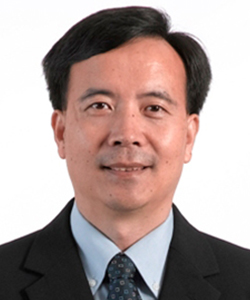
Lihua Xie
Nanyang Technological University (NTU), Singapore
Title of Speech: Inverse Optimal Control and Inverse Non-cooperative Games
Abstract: Inverse optimal control (IOC) was initiated in the 1960s and has been studied over the past decades with emphasis on the infinite horizon case. In recent years, the study on the IOC has been rejuvenated for finite-horizon and games settings, and also for inverse reinforcement learning. In this talk, we shall first briefly discuss some recent development in IOC, in particular, the inverse Kalman filtering, where unknown parameters and/or inputs in a filtering model are to be reconstructed from observations of the posterior estimates that can be noisy or incomplete. We shall then look into the inverse problem for a class of nonzero-sum linear quadratic (LQ) games with indistinguishable observations. Our goal is to reconstruct the unknown individual objectives from permuted observations of the Nash equilibrium trajectories. Under the symmetry in the game structure, the identifiability of the underlying game model is established and the well-posedness of the inverse game problem is guaranteed. An efficient subdifferential algorithm is proposed to solve the problem.
Bio: Lihua Xie obtained his PhD degree from the University of Newcastle, Australia, in 1992. He is currently President’s Chair with the School of Electrical and Electronic Engineering, Nanyang Technological University and Director, Center for Advanced Robotics Technology Innovation (CARTIN). He has served as Head of Control and Instrumentation Division and Director of Delta-NTU Corporate Laboratory for Cyber-Physical Systems. His research areas include robust control, multi-agent systems, learning-based control, and unmanned systems. He is currently an Editor-in-Chief of Unmanned Systems and has served as an Editor of IET Book Series on Control and Associate Editor of IEEE Transactions on Automatic Control, Automatica, IEEE Transactions on Control Systems Technology, IEEE Transactions on Control of Network Systems, etc. He was an IEEE Distinguished Lecturer (2011-2014) and the General Chair of the 62nd IEEE Conference on Decision and Control (CDC 2023). He is currently Vice-President of IEEE Control System Society. Professor Xie is Fellow of Academy of Engineering Singapore and Fellow of IEEE, IFAC, CAA and AAIA.
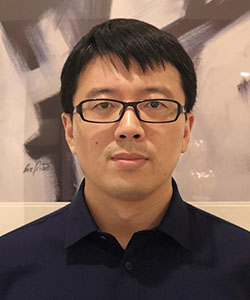
Wotao Yin
Alibaba Group, U.S.
Title of Speech: A Problem-Centric Approach to Decentralized Algorithms and Insights into Finite-Time Consensus
Abstract: This talk explores distributed and decentralized optimization, where computational agents collaborate across networks to solve problems of the form min r(x)+1/n ∑ (f_i(x)+h_i(x)). We introduce a novel approach that reformulates these optimization problems to embed network structures in the constraints, enabling the direct application of mature algorithms. This problem-centric shift — moving away from traditional algorithm-centric methods like modifying gradient descent for distribution — simplifies convergence analysis, clarifies algorithmic relationships, and extends solutions to dynamic networks. To take advantages of dynamic networks, we examine finite-time consensus, where agents achieve agreement in a fixed number of steps using efficient communication protocols, and show how it enhances efficiency within our framework. This joint work with: Xin Jiang, Edward Nguyen, and Bicheng Yin.
Bio: Dr. Wotao Yin obtained his PhD in Operations Research from Columbia U. He is a principal scientist in the Alibaba US DAMO Academy. Before that, he was a Professor in the UCLA Math Department. His research interests include large-scale, distributed, and decentralized optimization and its applications in image processing, machine learning, and other data science problems. He invented the EXTRA decentralized method and fast variants of ADMM. He has been among the top 1% highly cited mathematicians since 2018. One of his papers was the 2008 ICASSP most cited paper, and another received the 2018 IEEE Signal Processing Society Young Author Best Paper Award. He received an NSF CAREER Award 2006, Sloan Research Award 2007, Morningside Gold Medal 2016, DAMO Award 2021, and Egon Balas Award 2021.
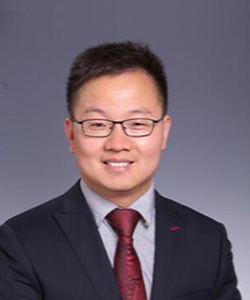
Keyou You
Tsinghua University, China
Title of Speech: Asynchronous Methods for Distributed Optimization of Multi-agent Networks
Abstract: A popular asynchronous protocol for distributed optimization is randomized gossip where a pair of neighbors concurrently update via pairwise averaging. In practice, this creates deadlocks and is vulnerable to information delays. In this talk, each node of distributed algorithms updates asynchronously and independently, and does not wait for any other node. To address the convergence issue of asynchronicity, we propose to adaptively increase the step sizes of slow nodes to catch up fast nodes and show the linear rate of for the strongly convex function, where the virtual index k increases by 1 no matter on which node updates in the multi-agent network. The performance is validated on a logistic regression problem in terms of linear speedup and implementations.
Bio: Keyou You received the B.S. degree in Statistical Science from Sun Yat-sen University, Guangzhou, China, in 2007 and the Ph.D. degree in Electrical and Electronic Engineering from Nanyang Technological University (NTU), Singapore, in 2012. After briefly working as a Research Fellow at NTU, he joined Tsinghua University in Beijing, China where he is now a Full Professor in the Department of Automation. He held visiting positions at Politecnico di Torino, Hong Kong University of Science and Technology, University of Melbourne and etc.
Prof. You’s research interests focus on the intersections between control, optimization and learning as well as their applications in autonomous systems. He received the Guan Zhaozhi award at the 29th Chinese Control Conference in 2010 and the ACA (Asian Control Association) Temasek Young Educator Award in 2019. He received the National Science Funds for Excellent Young Scholars in 2017, and for Distinguished Young Scholars in 2023. Currently, he is an Associate Editor for Automatica and IEEE Transactions on Control of Network Systems.
SILVER SUPPORTERS


IEEE OAJPE SPECIAL SECTION
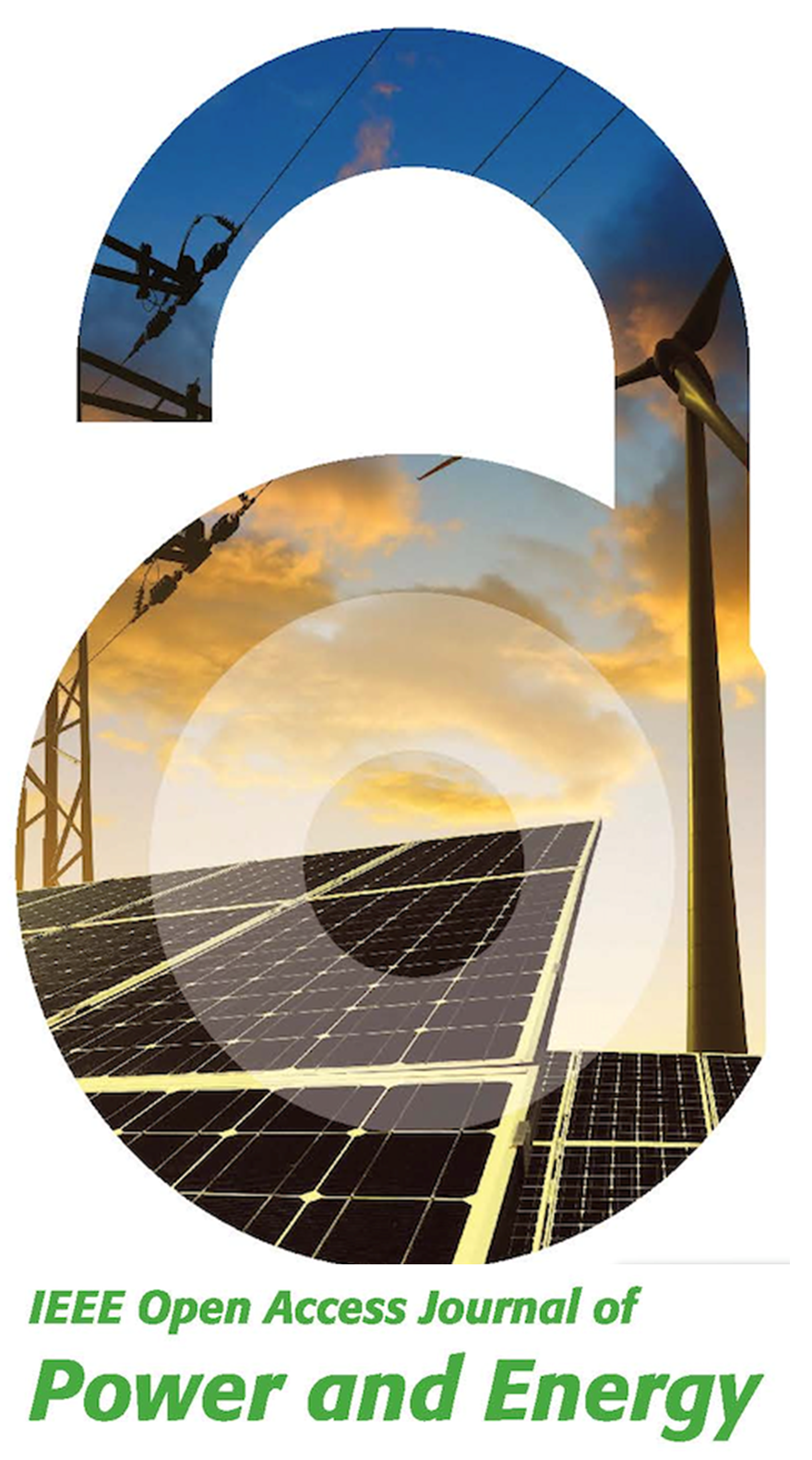
BRONZE SUPPORTERS



GOLD SUPPORTERS








